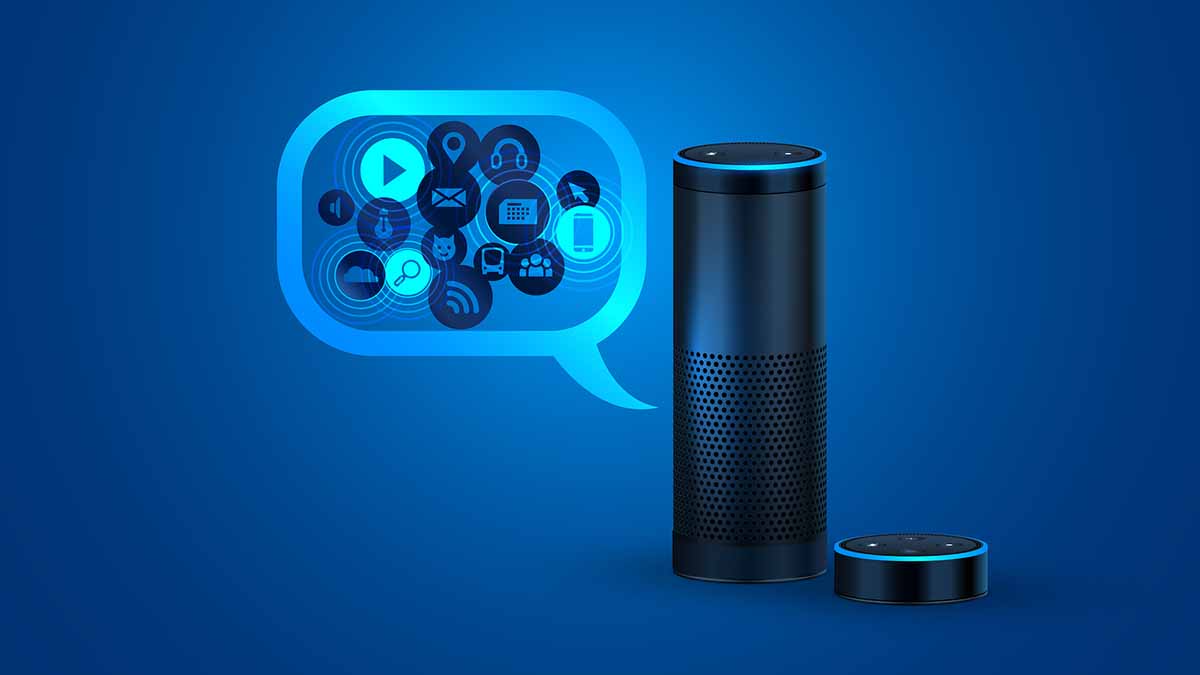 Smart speakers that run Alexa, Google Assistant, Siri, or Cortana are becoming increasingly common in our homes. Some people love their ease and convenience, while others think that George Orwell’s 1984 has come true, and that these are tools designed to spy on us.
Smart speakers that run Alexa, Google Assistant, Siri, or Cortana are becoming increasingly common in our homes. Some people love their ease and convenience, while others think that George Orwell’s 1984 has come true, and that these are tools designed to spy on us.
Emotions run high about the pros and cons of this new technology, but what if your smart speaker could save you from a heart attack, while it’s happening?
As a new study in the journal Npj Digital Medicine suggests, your smart speaker will one day be able to hear you having a heart attack and save your life by calling for help.
According to the American Heart Association, almost 300,000 people die in the United States every year after having heart attacks outside of hospital. At least two thirds of these happen at home, and the most common place they happen is in the bedroom.
The new technology hinges on the fact that the smart speaker is such a good listening device. A heart attack causes low oxygen levels that leave you gasping for air. You make a guttural sound that’s called “agonal breathing” and it tells the smart speaker very clearly that you’re in trouble.
University of Washington scientists got hold of 162,911 calls during which bystanders had held a phone up to an unconscious heart attack sufferer’s mouth. From these calls, they made 236 different audio clips.
They programmed these clips into a range of smart devices and used further machine learning techniques to expand the data set to 7,316 clips.
They then played these agonal breathing clips to smart devices to see whether they could recognize a heart attack when they heard it.
To make it even more challenging and realistic, the researchers played these clips at various distances from the smart devices, and with other frequently heard home sounds cluttering up the background like air-conditioning, cats, dogs, and car horns.
It sounds tough, but the system was well trained. Researchers collected 7,305 sound clips from sleep studies that included snoring, sleep apnea, and the like to add to what it could recognize.
After giving the smart devices time to learn from all those sounds, they were able to correctly identify a whopping 97 percent of heart attack cases. A phenomenal result!
They only made mistakes in 0.14 percent of cases, confusing sleep noises with agonal breathing.
But even that great result improved when the researchers changed the rules of identification slightly. As soon as it was decided that agonal breathing could only be diagnosed when the speakers heard two of the suspected breathing noises, 10 seconds apart, the results jumped to an amazing 100 percent accuracy.
So, how would this system work practically?
In the future, the service would run as an app on a smart device. It would listen to you round the clock and when triggered it would sound the alarm for someone else in the house to come and help you, or it could even dial emergency services if you were alone.
This service is still a long way from becoming widely available, but the researchers are serious about bringing it to the market someday.
Before that can happen though, they need to work on expanding their database of heart attack sounds so that they can train the system to become more accurate.

 Overcoming IBD
Overcoming IBD Multiple Sclerosis
Multiple Sclerosis Banishing Bronchitis
Banishing Bronchitis Gum Disease Gone
Gum Disease Gone Overcoming Onychomycosis
Overcoming Onychomycosis Neuropathy No More
Neuropathy No More The Prostate Protocol
The Prostate Protocol Brain Booster
Brain Booster
 Ironbound
Ironbound
 Solution for Shingles
Solution for Shingles
 The Bone Density Solution
The Bone Density Solution
 The Ultimate Healing Protocol
The Ultimate Healing Protocol
 The Parkinson's Protocol
The Parkinson's Protocol
 The Chronic Kidney Disease Solution
The Chronic Kidney Disease Solution
 Overthrowing Anxiety
Overthrowing Anxiety The Fatty Liver Solution
The Fatty Liver Solution The Hypothyroidism Solution
The Hypothyroidism Solution
 The End of Gout
The End of Gout The Blood Pressure Program
The Blood Pressure Program
 The Oxigized Cholesterol Strategy
The Oxigized Cholesterol Strategy
 Stop Snoring And Sleep Apnea Program
Stop Snoring And Sleep Apnea Program
 The Arthritis Strategy
The Arthritis Strategy The Vertigo & Dizziness Program
The Vertigo & Dizziness Program The 3-Step Diabetes Strategy
The 3-Step Diabetes Strategy Hemorrhoids Healing Protocol
Hemorrhoids Healing Protocol The Erectile Dysfunction Master
The Erectile Dysfunction Master Weight Loss Breeze
Weight Loss Breeze The IBS Program
The IBS Program The Insomnia Program
The Insomnia Program The Migraine and Headache Program
The Migraine and Headache Program The Neck Pain Solution
The Neck Pain Solution The Menopause Solution
The Menopause Solution The Ejaculation Master
The Ejaculation Master The TMJ Solution
The TMJ Solution The Acid Reflux Solution
The Acid Reflux Solution The Fibromyalgia Solution
The Fibromyalgia Solution The Psoriasis Strategy
The Psoriasis Strategy